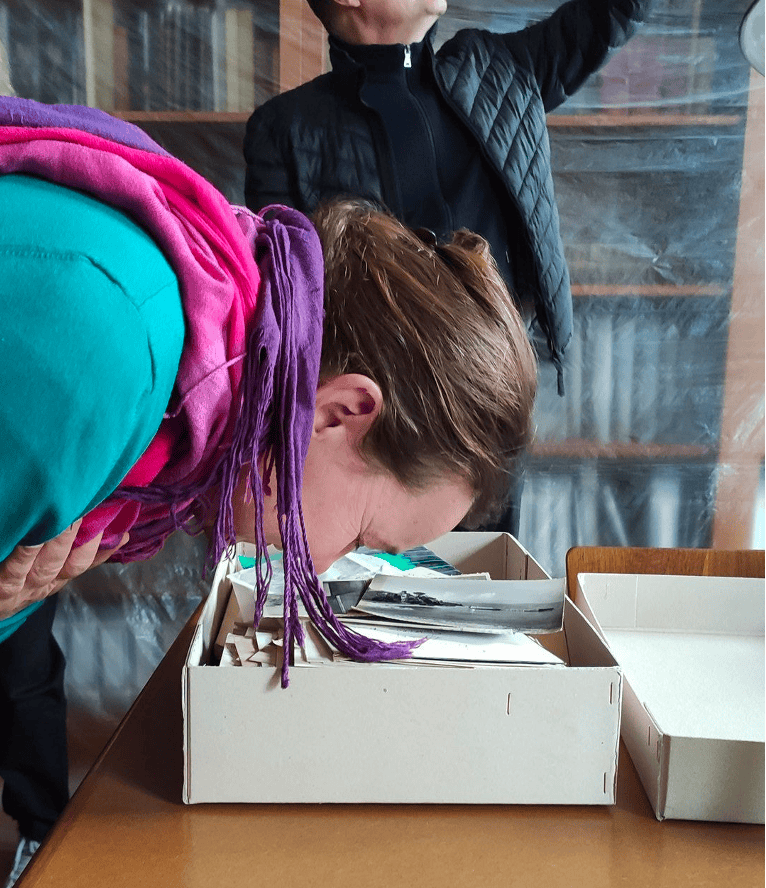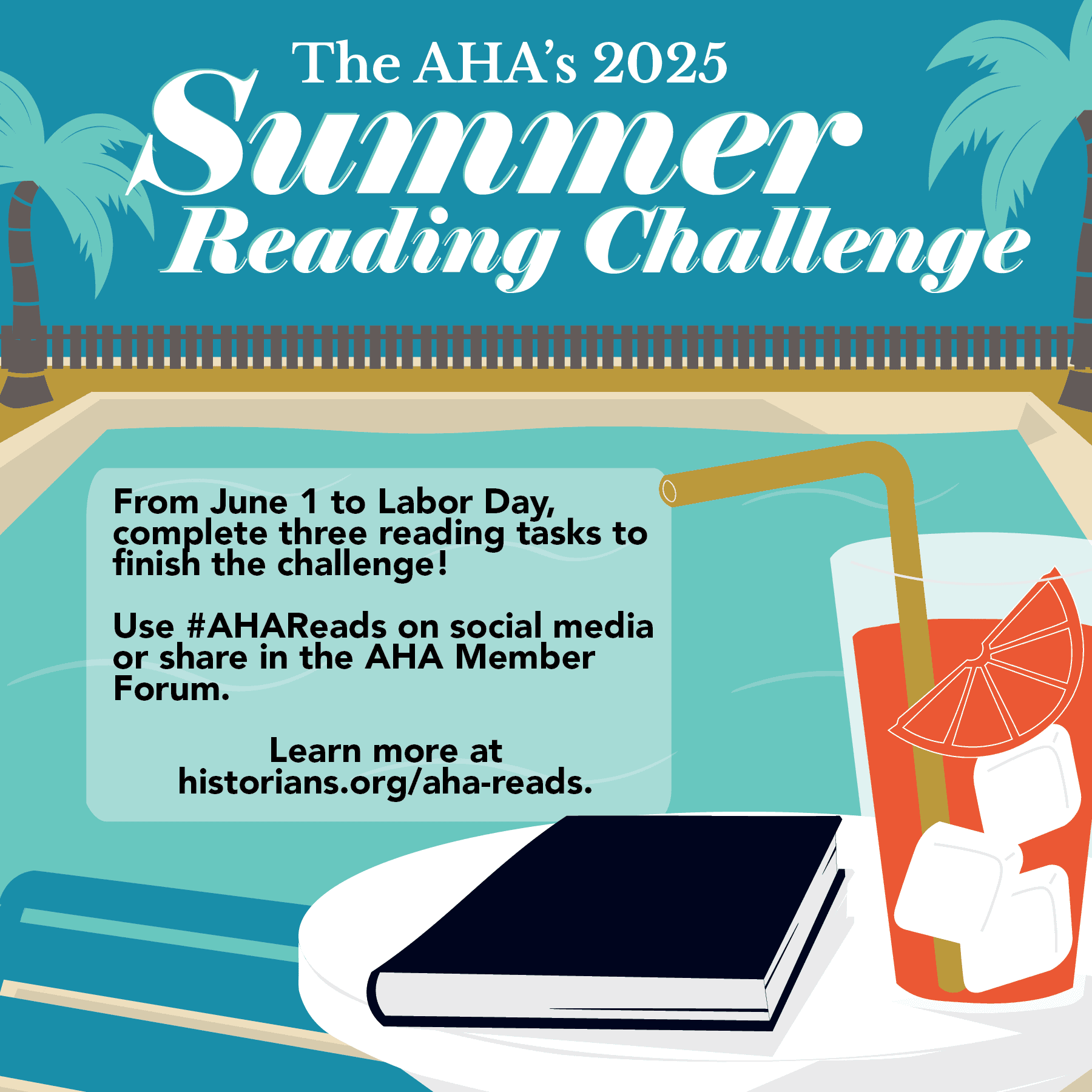K–12 Education Today
American Lesson Plan: Teaching US History in Secondary Schools
The AHA’s 2024 report shares findings from the most comprehensive study of secondary US history education undertaken in the 21st century. AHA researchers appraised standards and legislation in all 50 states, conducted a survey of over 3,000 middle and high school US history educators, interviewed over 200 teachers and administrators, and reviewed thousands of pages of instructional materials from small towns to sprawling suburbs to big cities. The report provides empirical evidence and rigorous analysis to inform current debates over how history is taught in our schools.

Teaching History with Integrity
The AHA leads or participates in several initiatives to support history educators facing intensifying controversies about what we teach and how we teach it. Historians, including both scholars and educators, play a crucial role in public deliberations about how to engage students in truthful and rigorous inquiry in history classrooms.

Mapping the Landscape of Secondary US History Education
Mapping the Landscape of Secondary US History Education is the AHA’s multi-stage effort to provide a research-based grounding for ongoing civic deliberations about the teaching of US history in American classrooms.

AHA State History Standards Support
As part of its mission to promote historical thinking in public life and professional integrity in history education, the American Historical Association monitors and offers guidance on state-level academic frameworks.

Freedom to Learn
The AHA’s Freedom to Learn initiative educates historians and others on how to advocate publicly for honest history education, responds directly to the bills themselves, and creates resources to help teachers directly affected by these bills think about how to maintain the integrity of their history courses.
Teaching Spotlight: Confronting a Nation's Past
Katharina Matro, a high school social studies teacher who grew up in Germany, explains how consistent and open education about the Holocaust has shaped her own commitment to democracy and her love of country. Matro has served as a member of the Teaching Division of the American Historical Association's governing council.
Resources for Educators
Teaching Things: Material Culture in the History Classroom
Teaching Things: Material Culture in the History Classroom is a new, National Endowment for the Humanities–funded project at the American Historical Association. The digital Object Library helps teachers identify material culture sources for classroom use and includes ready-made resources and materials that teachers can use to craft lesson plans to fit their curriculum. Teaching Toolkits offer plug-and-play resources featuring object-based lessons across fields, time periods, and geographic spaces.

Standards & Guidelines for the Discipline
Many of the AHA's standards and guidelines focus on teaching and learning issues, including Criteria for Standards in History/Social Studies/Social Sciences and Guidelines for Online Teaching.

#AHRSyllabus
The #AHRSyllabus is a collaborative project designed to help teachers and students look "under the hood" at how historians in the early 21st century do the work of history.

AHA Reads
We invite you to participate in the fourth annual AHA Summer Reading Challenge. Participants will complete three (or more) reading tasks in the months of June, July, and August.

College, Career, and Civic Life (C3) Framework
In 2013, the AHA, National Council for the Social Studies, and 13 other professional organizations collaborated to produce the College, Career, and Civic Life (C3) Framework for Social Studies State Standards.

Flashpoints: Free Speech in American History, Culture, and Society
PEN America and the AHA developed the Flashpoints event series to present the history of free speech in American democracy to public audiences around the United States.

For Educators: Explaining Today
In 2022, the American Historical Association, the National Council for the Social Studies, the John N. Gardner Institute for Excellence in Undergraduate Education, and New American History hosted a series of listening sessions for K-12 educators and higher education faculty.
AHA Resource Library
The AHA’s Resource Library includes hundreds of resources developed or vetted by the AHA and our partners. Our resources range from classroom syllabi, to archival documents from the Civil War, to standards and guidelines for the discipline, and much more.
Conferences and Institutes
K–12 Membership
The AHA is pleased to offer a special membership price for K–12 educators. The AHA also offers a special Institutional Membership for K–12 history departments.

Regional Conferences on Introductory History Courses
Our regional conferences endeavor to strengthen the community of practice focused on introductory history courses, both in secondary and higher education. Middle and high school teachers, as well as curriculum supervisors, are encouraged to attend.

AHA Learn
Are you interested in the latest conversations about teaching and learning? Join us for our regular series of online programs that are free and open to the public.

Online Teacher Institutes
In July and August 2023, to commemorate the 10th anniversary of its involvement in the creation of the C3 Framework, the AHA convened a weeklong professional development institute for K–12 teachers of world history.

History Behind the Headlines
History Behind the Headlines events feature prominent historians discussing the history behind current events. Open to the public and free of charge, events in this series are generously sponsored by AHA member Jared Brubaker.
Teaching with Primary Sources
The AHA is proud to partner with the Library of Congress in serving the Teaching with Primary Sources (TPS) Mid-Atlantic/US Territories Region. The TPS grant program furthers the Library’s mission to engage, inspire, and inform audiences across the country with a universal and enduring source of knowledge and creativity. Through the TPS Regional Program, the AHA issues subawards to a wide variety of organizations that plan to integrate the Library’s resources into educational programs.